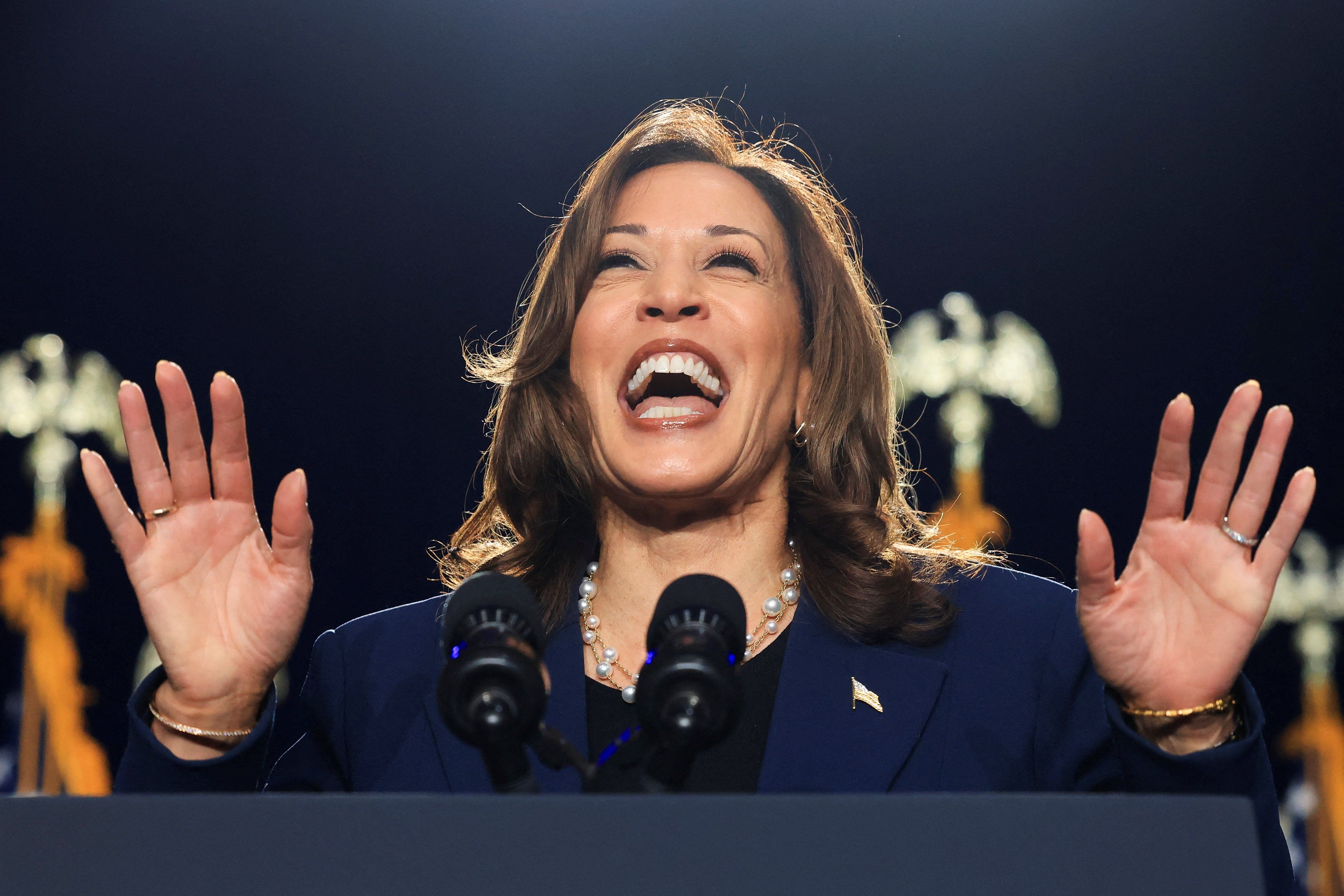Vice President Kamala Harris is on track to replace President Joe Biden as the Democratic nominee, leaving one major question remaining: Who will she choose as her number two?
"Harris needs someone who compliments her strengths,” says Eurasia Group’s US director Clayton Allen. “To put it bluntly, a white, male, moderate.” She is also looking for someone who can unify the party, draw in a new coalition of voters, or win in a swing state.
Former Attorney General Eric Holder is reportedly in charge of vetting a list of 10 Democrats being considered for the job.
The names getting the most buzz:
Josh Shapiro: The Pennsylvania governor, a can-do moderate, could help Harris win his state’s 19 electoral college votes by making inroads with rural, potentially Trump-leaning voters. A poll earlier this year showed that more than three in 10 Trump supporters in Pennsylvania supported Shapiro.
Shapiro, who is Jewish, has been an outspoken supporter of Israel’s policy in Gaza and an opponent of campus protests and divestment calls. The extent to which those stances could alienate progressive Democrats is an open question. Shapiro’s support for school vouchers also ran afoul of Pennsylvania’s largest teachers union, an issue that will likely also attract attention.
Mark Kelly: Like Shapiro, the Arizona Senator also hails from a swing state, and his tough stance on border security could help Harris – who was given the southern border as a portion of her issue portfolio – withstand attacks on the administration’s border record. Plus, “he has a nice story,” says Eurasia Group US expert Jon Lieber. “He’s an astronaut and loyal husband to his wife, who was a victim of gun violence.” Kelly is married to former congresswoman Gabrielle Giffords, who was severely wounded in a mass shooting in Tucson in 2011.
His downside: If he ran it would mean abandoning a Democratic Senate seat in a swing state, forcing the Dems to defend it again two years earlier than expected.
In the middle of the pack …
Andy Beshear: The governor of Kentucky “brings a southern state moderate appeal that boosts Harris’s blue-collar appeal,” says Allen. Beshear has won two terms in a solidly Republican state that Trump won by 26 points in 2020. He is vocal about his Christianity and has emphasized the need to work with Republicans on legislation – traits that could boost Democratic support among moderates and independents. But Trump is almost certainly going to win in Kentucky, putting Beshear at a disadvantage to the other swing-state governors.
Roy Cooper: At 67, Cooper has had a long political career as the former state’s attorney general and North Carolina senator, making him among the most qualified of the VP picks – but age has proven to be a double-edged sword in this election season. Cooper’s successes as a Democratic candidate in an increasingly Republican state may sweeten his odds for VP in helping turn the Tar Heel State, a key battleground state, blue for the first time since 2008.
JB Pritzker: The Illinois governor’s family owns the Hyatt hotel chain, and his deep pockets could help Harris raise money – though having received a $100 million money shower after Biden stepped down, the vice president isn’t exactly desperate for cash. Pritzker, who is also Jewish, has been more moderate on the Gaza issue than Shapiro. But as a 1-percenter, Pritzker won’t help Harris connect with the working-class midwestern Biden-2020 voters she needs, says Lieber. And Illinois isn’t a state in danger anyway: Biden won it by 17 points.
At the bottom of the list …
Pete Buttigieg: The 42-year-old secretary of transportation is an unlikely choice despite being, in Allen’s words, “a lightning rod for self-harming Republican commentary,” referring to the fact that Buttigieg is often the target of homophobic rhetoric from the right. Buttigieg, a former management consultant who is known for his meticulous challenges to Republican talking points in Congress and on TV, would be the first openly gay veep. But he is an unlikely choice because his appeal is limited to urban liberal voters who are already almost certain to vote for Harris.
Tim Walz: The Minnesota governor and veteran of the US Army National Guard has snuck his name onto the list even though he lacks much national recognition. Walz’s efforts to protect abortion rights and his introduction of free school meals for students and gender-affirming care fit nicely with Harris’s policy preferences, and his rural sensibility bodes well with moderate Americans. Plus, Minnesota – once a Democratic stronghold – has been leaning further right in recent years. However, that’s not likely enough to land Walz the VP pick, as neither he nor his state is competitive enough to truly sway this election.
Gretchen Whitmer: The Michigan governor was rumored as an alternative replacement to Biden but has since endorsed Harris – and is likely waiting for 2028 to throw her hat in the ring. The former senator and prosecutor’s impressive and progressive record aligns with Harris’s as a strong defender of abortion rights, advocate for improved gun legislation, and co-chair of the Biden-Harris campaign. She would be a strong counterweight to the hyper-male Republican bid; however, for a country that has yet to elect a female president, an all-female ticket may be a stretch.
For Allen, “the two most obvious, at least for now, are Arizona Sen. Mark Kelly and Josh Shapiro.” Who do you think she is most likely to choose? Who do you think she should pick? Let us know here.
